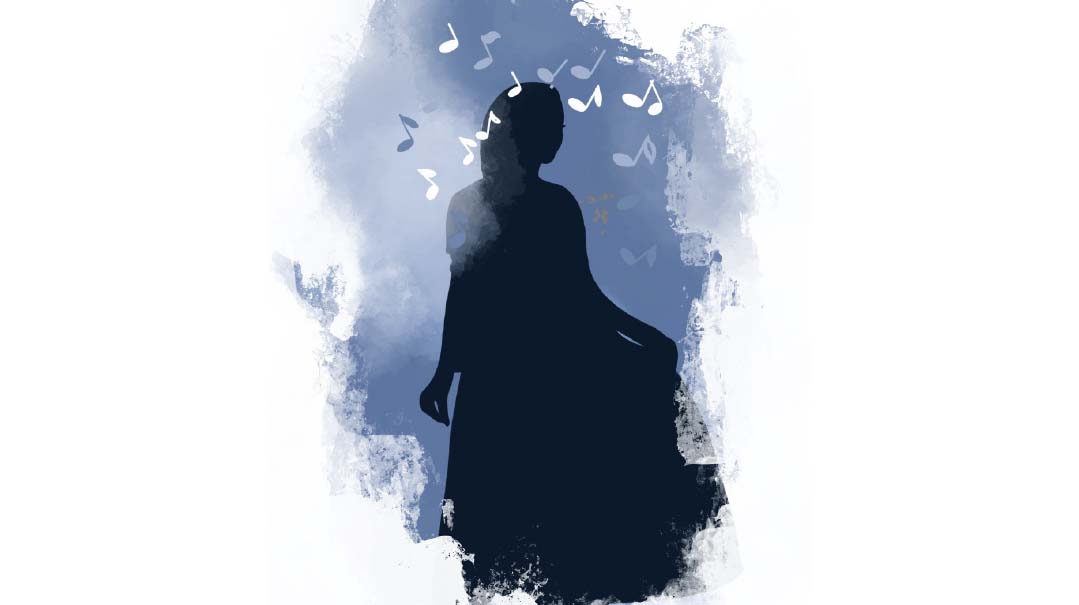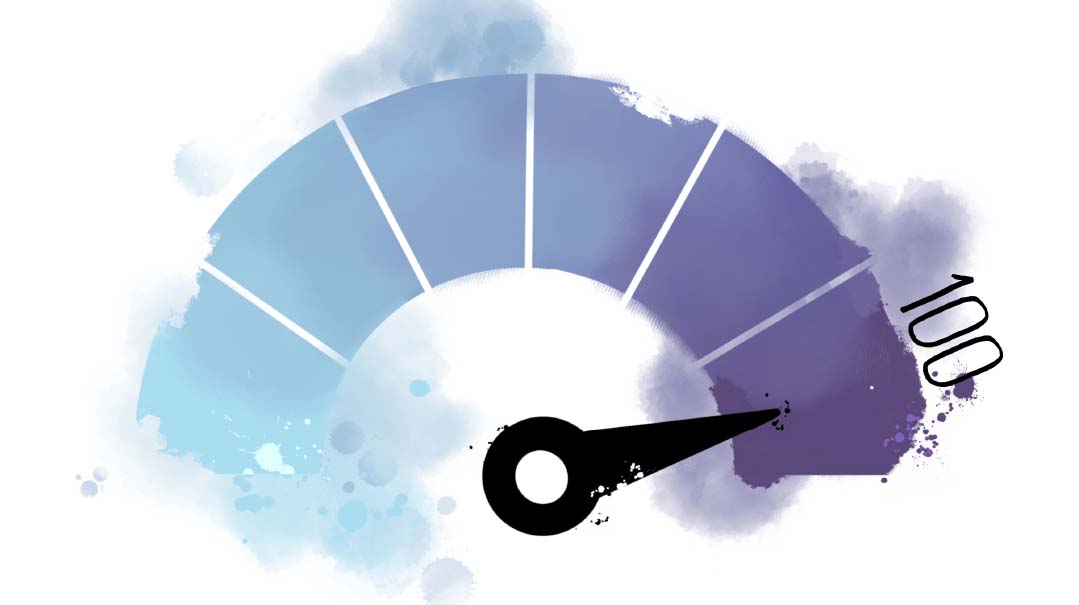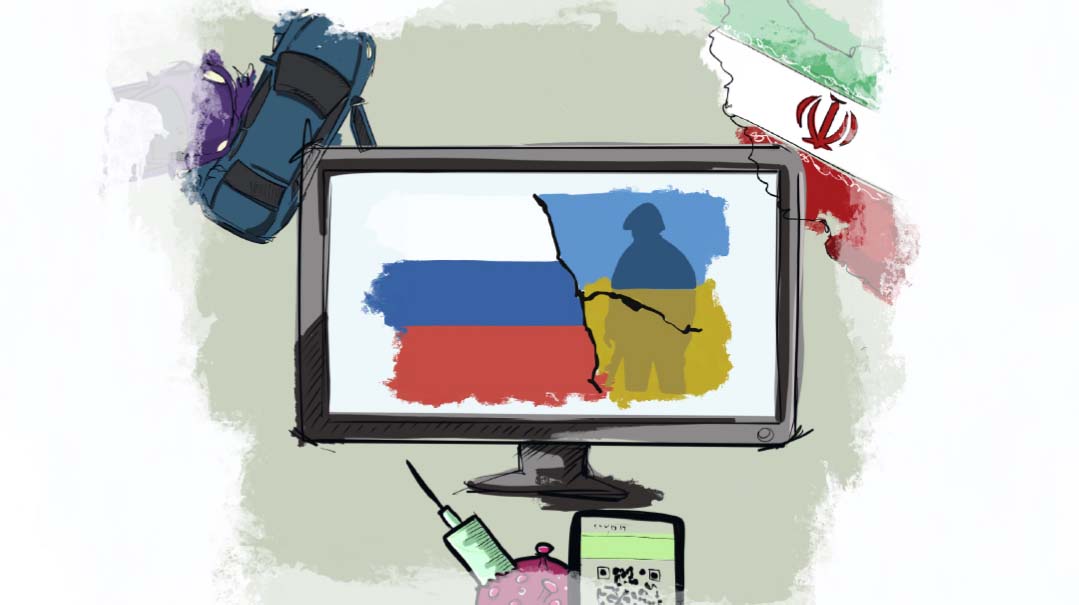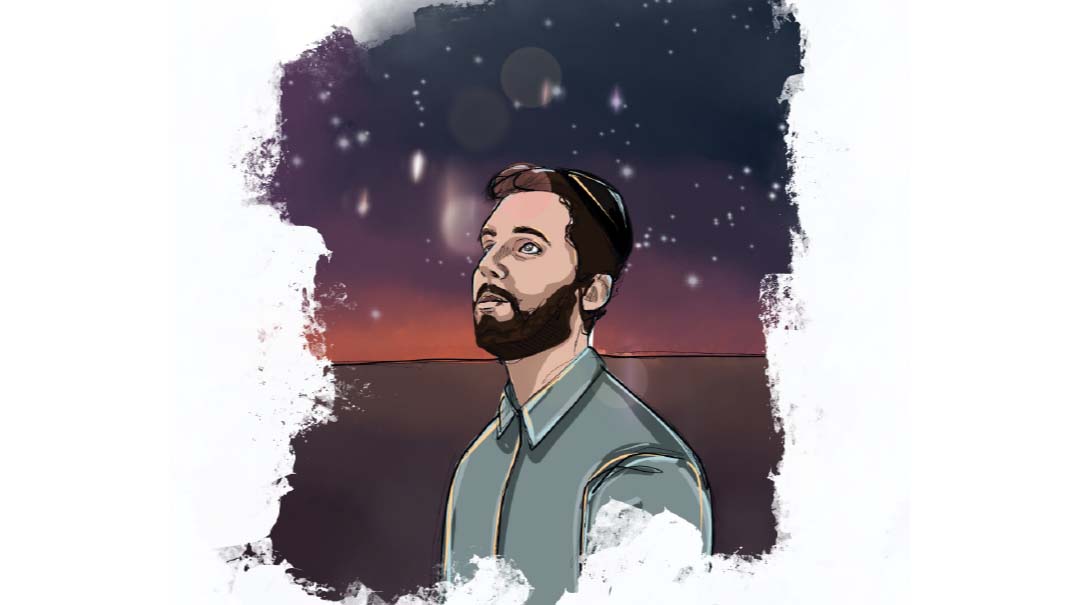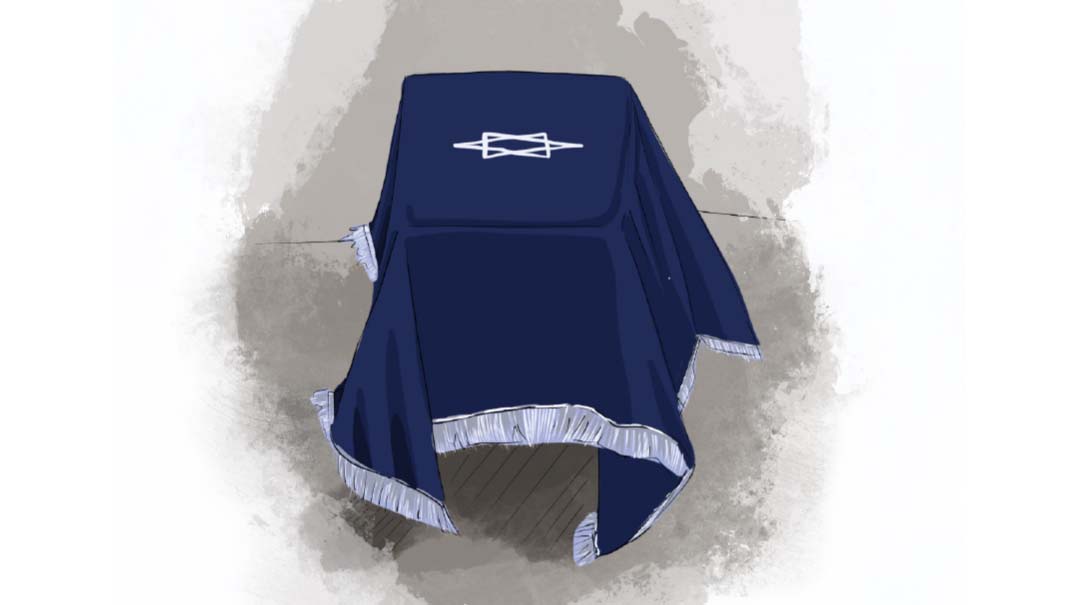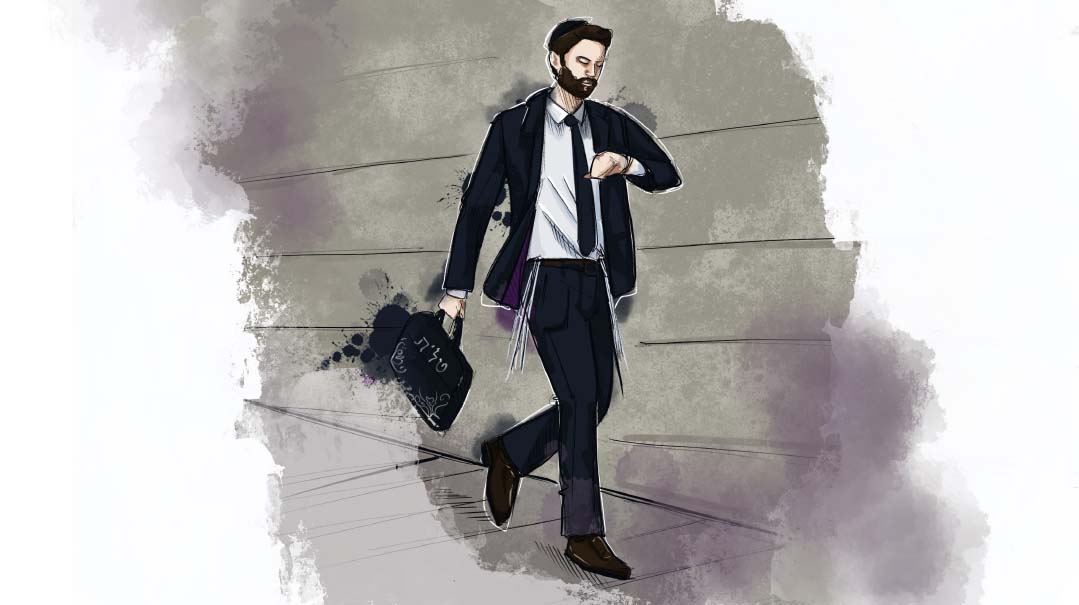Word to the Wise
| February 22, 2022Two years later, those Covid-inspired kabbalos and resolutions are still keeping us going. Eight personal accounts
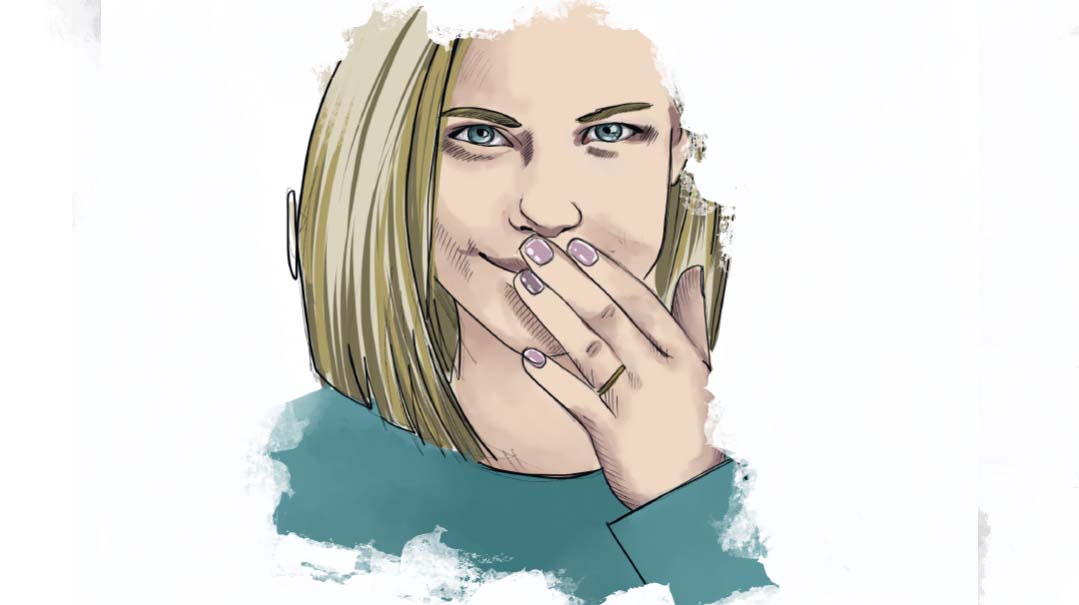
Project Coordinator: Rachel Bachrach
Illustrations: Marion Bellina
As told by Shuly Zuckerman to Sandy Eller
As the assistant middle school principal at Bnos Malka Academy, I was initially disconcerted to be so far away, in Chicago for my nephew’s wedding, when the world crashed to a halt. But the distance proved insignificant as we transitioned the entire school body from our Forest Hills, New York, campus to cyberspace.
Zoom classes were a big adjustment for both teachers and students. Our morning community meetings, where the girls gathered to start off the day with Tehillim and the Pledge of Allegiance, were one of Covid’s many casualties, and I found myself looking for another way to engage with them. I decided to do a morning video message for the students, taking turns each day with our menahel, Rabbi Michael Weichselbaum.
I’d heard that Rav Chaim Kanievsky had said we should focus on vatranus and shemiras halashon during the pandemic, and while I spoke about the former in my first video, I focused on shemiras halashon in my subsequent videos. I spent considerable time putting together videos that would draw the girls in, making sure there was always some kind of follow-up to keep them engaged — and it worked. The feedback was enthusiastic, both from students and their parents, which was gratifying for me.
The much-touted “two weeks to flatten the curve” stretched endlessly, and I kept at the shemiras halashon videos, but it wasn’t easy. I was busy day and night, staying on top of my school responsibilities as well as my own crew at home. And of course, aside from the preparation and work that went into creating each video, I had to be fully dressed and made up for each presentation. All in all, it was a pretty demanding undertaking, but it felt good to know I was keeping up with my students and teaching them lessons for a lifetime.
When we returned to school in September of 2020, we no longer needed the videos to stay connected, but I still wanted to continue with the shemiras halashon program. It wasn’t lost on me (or anyone else, for that matter) that the pandemic had forced us to keep our mouths covered, and I felt we should integrate the idea into our lives as we moved ahead.
Rabbi Shlomo Ornstein of the Chofetz Chaim Heritage Foundation suggested we use their Shomrei Halashon program in the classrooms, instead of in bite-size morning snippets as we had done during the lockdown. We tweaked our halachah curriculum and moved various components around so we could dedicate fifth grade halachah to shemiras halashon. The program launched in September 2021, with Mrs. Sarah Leibowitz and Mrs. Shoshana Sabel, our fifth grade morahs, teaching a halachah a day to the girls, including stories and questions. Students who complete the program for a full month get prizes, and there are also weekly and monthly quizzes and special Shabbos stories.
Watching our students incorporate shemiras halashon into their lives has been an inspiration, and it has created real opportunities for discussions about conflict resolution. Just last week, a student came to me after having a disagreement with another girl. When I asked her what she could have done differently based on what she was learning in shemiras halashon, she didn’t hesitate, pinpointing where she had gone wrong.
“I know, I shouldn’t have said that lashon hara,” she told me.
Another student shared that if someone starts speaking lashon hara in class, her classmates pipe up, “Shomrei halashon!” and they change the subject. And I can’t begin to tell you how proud I was of our fifth graders who kept up with their halachah-a-day over winter vacation.
This year I’ve been sharing a daily 30-second thought with the girls on emunah during our morning meetings. Teachers have told me the quick vort has had a positive impact on the atmosphere, and that the entire morning is charged with inspiration. I also share stories at our morning meetings of students who report that their tefillos were answered after they were inspired to start davening for a particular outcome.
I look at my students today and see how initiatives we implemented to keep everyone connected during the lockdown have blossomed into robust programs. I can only hope that if our school remembers one thing from the pandemic, it will be the special connection we shared amid all the craziness and the sensation of being wrapped in Hashem’s love as we learned to properly guard our tongues, caring for Hashem’s children as our own.
Shuly Zuckerman is the assistant middle school principal at Bnos Malka Academy in Queens, New York.
(Originally featured in Mishpacha, Issue 900)
Oops! We could not locate your form.
